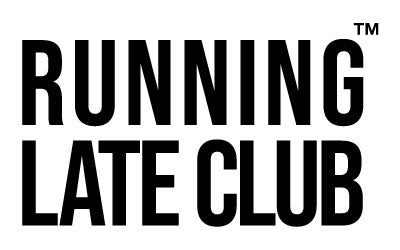
A DIETITIAN'S GUIDE TO EATING FOR A MARATHON
Training for a marathon (or a half marathon) is not just about logging distance and following a training plan. It also requires proper nutrition to fuel your body for optimal performance. I'm a Registered Dietitian and I'm here to guide you on eating the right foods before, during, and after your race.
PRE-RACE NUTRITION
In the days leading up to your race, you want to focus on increasing your carbohydrate intake to maximize glycogen (carbohydrate) stores in your muscles. You want to make sure that you start the race with optimal glycogen stores. This is known as carbo-loading.
The addition of carbohydrates should be done at the expense of some protein and fat (see normal plate vs pre-race plate). You want to choose whole grain pasta, rice, bread, and cereals, as well as fruits, vegetables, and legumes. Try to also add some carbohydrate-based snacks such as fruit, cereal bars and fruit juices to your day.
Although carbohydrates are your primary source of energy, it is important to also include enough protein and healthy fats. You want to include lean sources of protein like chicken, fish, tofu, or legumes (chickpeas, lentils, beans) and a small amount of healthy fats like avocados, nuts, seeds, and olive oil. This will support your overall nutrition and keep you feeling full.

Staying hydrated is also important for both training and race day. It is important to drink water consistently throughout the day. You can monitor your urine colour to ensure it is light yellow, which indicates that you are hydrated.
Examples of training meals:
Breakfast:
Lunch:
Dinner:
RACE-DAY NUTRITION
This is an opportunity to top-up your glycogen (carbohydrate) stores before heading out. Aim to eat a well-balanced meal 2-3 hours before the start of your race so that your body has time to digest the meal. If your race starts early and there isn’t time to eat a meal, you can have a snack 30-60 minutes beforehand. You want to choose simple carbohydrates (ie. white) that are easy to digest and avoid high-fiber and greasy foods that may cause digestive discomfort. I know this contradicts general nutrition advice but it's important for energy!
Examples of pre-race meals:
- Toast with peanut butter and banana
- Muesli or oats with banana and honey
- Toast with honey or jam
Examples of pre-race snacks:
- Banana
- Dried fruit
- Glass of orange juice
When it comes to hydration there is a fine balance. You don't want to start your race dehydrated but you also don't want to be overly hydrated. Try to aim for about 5-10 ml of water per kilogram body weight in the 2-4 hours before the race. During the race, you want to maintain hydration by sipping water or sports drinks at regular intervals. Consider taking electrolytes too, especially potassium and sodium, with your water in order to maintain optimal hydration.
When it comes to fuelling during your race, for half marathons, you may not require additional fuelling if you've properly fuelled before the race. However, for marathons or longer distances, you may need to top up your energy stores. You can get performance benefits by consuming 30-90g of carbohydrates per hour (1 banana = 30g carbs). The exact amount will depend on the duration and how well you can absorb it without gut distress. You want to practice using these during training runs to determine what works best for you!
Examples include:
- Dried fruit
- Gummy sweets
- Energy gels
- Sports drinks
POST-RACE RECOVERY
After the race, it is important to consider the 3 R’s: refuel, repair and rehydrate.
- Refuel muscle glycogen (carbohydrate) after the race. During the first 2 hours after exercise, your body's ability to replenish energy (glycogen stores) is at its peak. Consume a snack or meal that contains a combination of carbohydrates and protein.
- Repair muscle tissue and stimulate muscle protein synthesis (growth) with high quality protein. Include lean meats, fish, dairy, eggs, legumes, or plant-based protein sources in your post-race meals and snacks.
-
Rehydrate with fluids and electrolytes. You want to replace lost fluids by consuming water or electrolyte-rich drinks soon after crossing the finish line. Continue hydrating throughout the day to aid in recovery.
Examples of post-race meals include:
- Smoothie with fruit & yogurt
- Whole wheat wrap filled with lean protein, mixed greens, and avocado
- Stir-fry with brown rice and a source of lean protein like chicken or tofu
- Omelette/ eggs with wholegrain toast and avocado
Tip: If you don’t have much of an appetite post-run, a smoothie or chocolate milk can be a great option as it contains carbohydrates, protein and fluid!
Training for a half marathon or marathon requires not only physical preparation but also paying attention to your nutrition. By following these guidelines or working with a Registered Dietitian, you can optimise your performance, support your body's needs, and enhance your overall running experience. Remember, every runner is different, so listen to your body and experiment with different foods during training.
